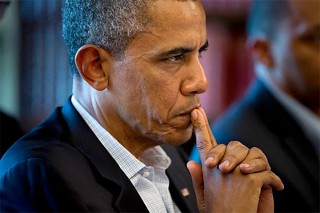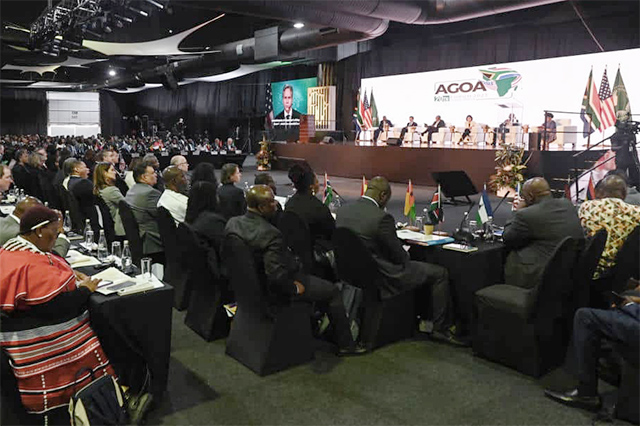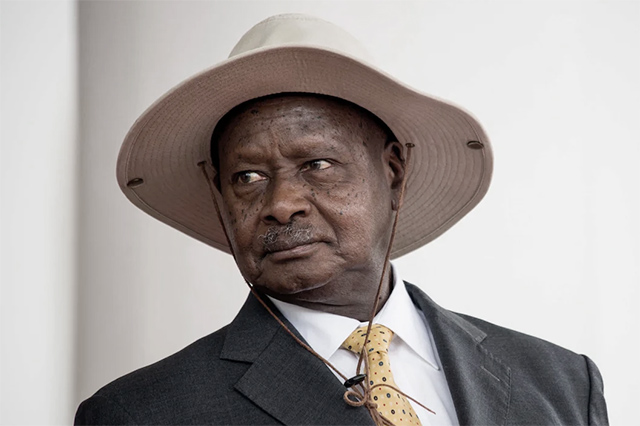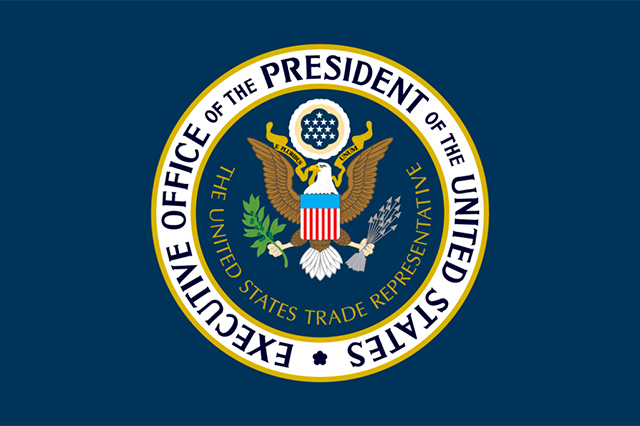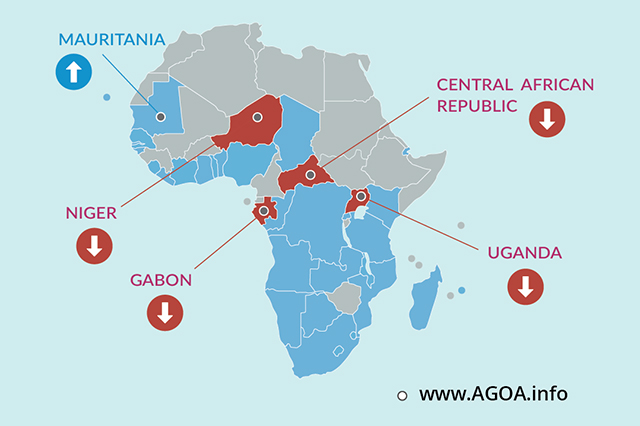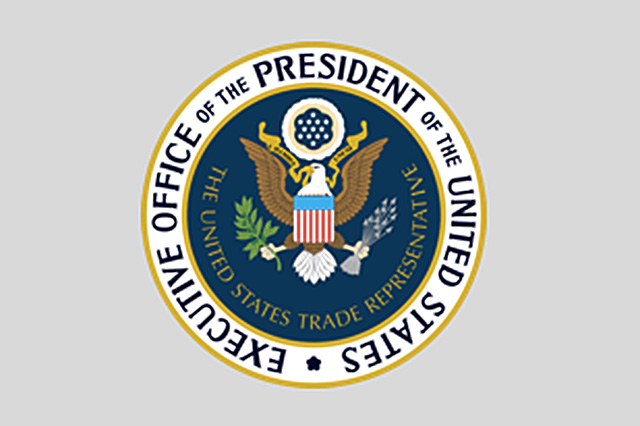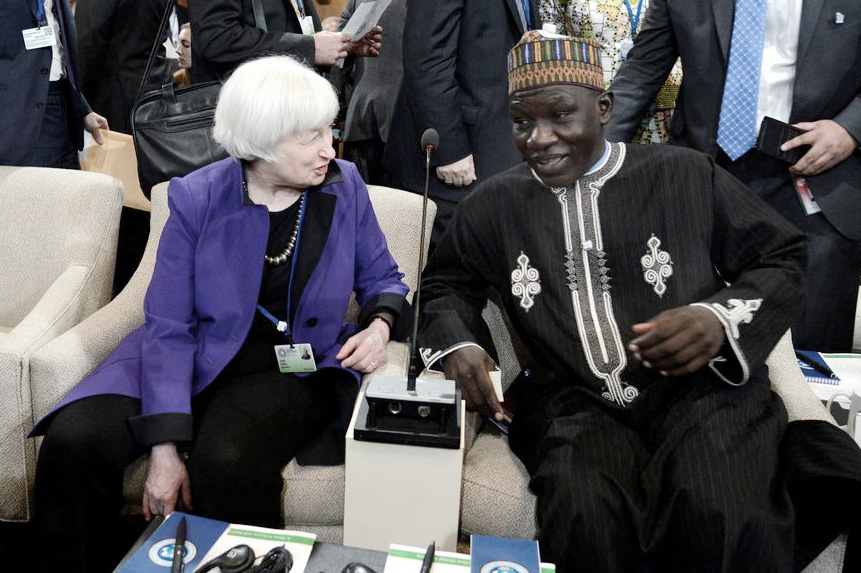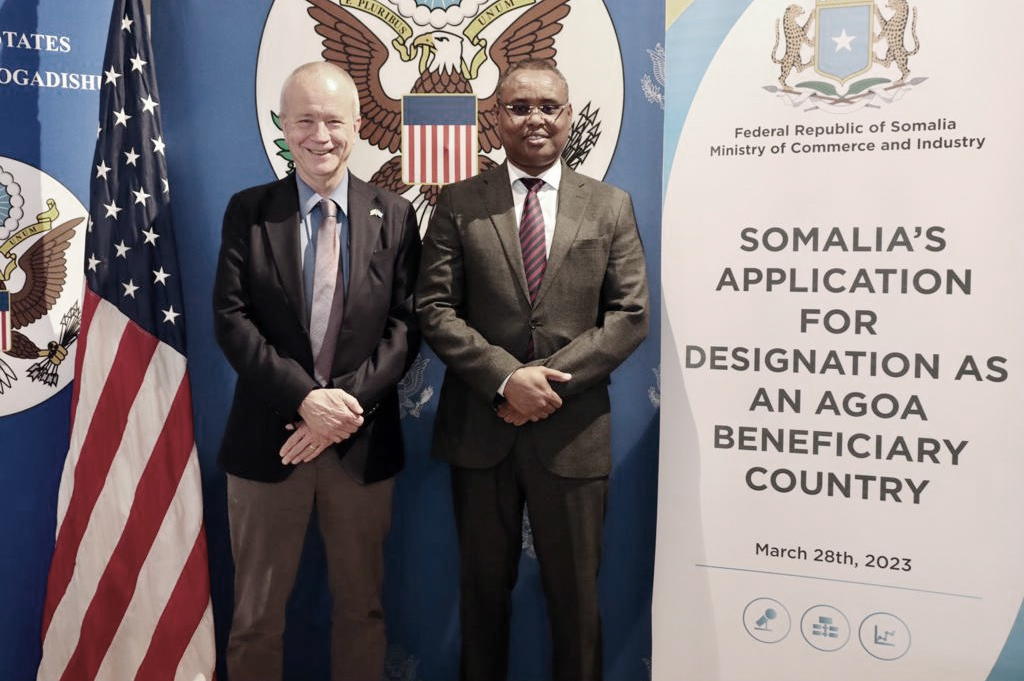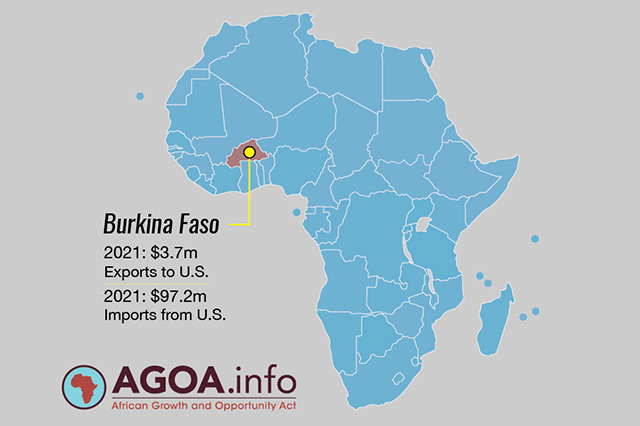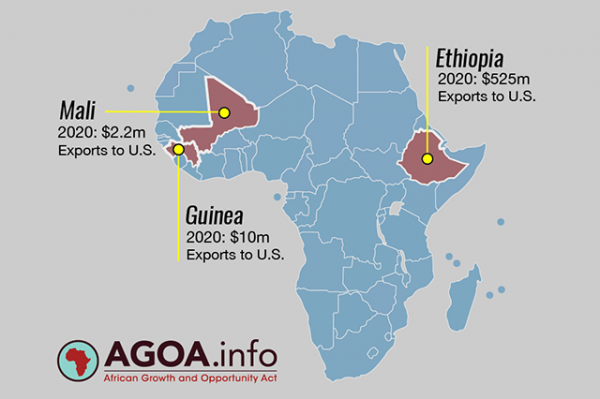Text of Official Proclamation on AGOA eligibility for 2015
TO TAKE CERTAIN ACTIONS UNDER THE AFRICAN GROWTH AND OPPORTUNITY ACT AND FOR OTHER PURPOSES, BY THE PRESIDENT OF THE UNITED STATES OF AMERICA
A PROCLAMATION
1. In Proclamation 8921 of December 20, 2012, I determined that the Republic of Guinea-Bissau (Guinea-Bissau) was not making continual progress in meeting the requirements described in section 506A(a)(1) of the Trade Act of 1974 (the 1974 Act) (19 U.S.C. 2466a(a)(1)), as added by section 111(a) of the African Growth and Opportunity Act (title I of Public Law 106-200) (AGOA). Thus, pursuant to section 506A(a)(3) of the 1974 Act (19 U.S.C. 2466a(a)(3)), I terminated the designation of Guinea-Bissau as a beneficiary sub-Saharan African country for purposes of section 506A of the 1974 Act.
2. Section 506A(a)(1) of the 1974 Act authorizes the President to designate a country listed in section 107 of the AGOA (19 U.S.C. 3706) as a beneficiary sub-Saharan African country if the President determines that the country meets the eligibility requirements set forth in section 104 of the AGOA (19 U.S.C. 3703), as well as the eligibility criteria set forth in section 502 of the 1974 Act (19 U.S.C. 2462).
3. Pursuant to section 506A(a)(1) of the 1974 Act, based on actions that the Government of Guinea-Bissau has taken over the past year, I have determined that Guinea-Bissau meets the eligibility requirements set forth in section 104 of the AGOA and section 502 of the 1974 Act, and I have decided to designate Guinea-Bissau as a beneficiary sub-Saharan African country.
4. In Proclamation 8921 of December 20, 2012, I designated the Republic of South Sudan (South Sudan) as a beneficiary sub-Saharan African country for purposes of section 506A(a)(1) of the 1974 Act. In Proclamation 7657 of March 28, 2003, the President designated the Republic of The Gambia (The Gambia) as a beneficiary sub-Saharan African country for purposes of section 506A(a)(1) of the 1974 Act.
5. Section 506A(a)(3) of the 1974 Act (19 U.S.C. 2466a(a)(3)), authorizes the President to terminate the designation of a country as a beneficiary sub-Sahara African country for purposes of section 506A, if he determines that the country is not making continual progress in meeting the requirements described in section 506A(a)(1) of the 1974 Act.
6. Pursuant to section 506A(a)(3) of the 1974 Act, I have determined that South Sudan and The Gambia are not making continual progress in meeting the requirements described in section 506A(a)(1) of the 1974 Act. Accordingly, I have decided to terminate the designation of South Sudan and The Gambia as beneficiary sub-Saharan African countries for purposes of section 506A of the 1974 Act, effective on January 1, 2015.
7. On April 22, 1985, the United States and Israel entered into the Agreement on the Establishment of a Free Trade Area between the Government of the United States of America and the Government of Israel (USIFTA), which the Congress approved in the United States-Israel Free Trade Area Implementation Act of 1985 (the "USIFTA Act") (19 U.S.C. 2112 note).
8. Section 4(b) of the USIFTA Act provides that, whenever the President determines that it is necessary to maintain the general level of reciprocal and mutually advantageous concessions with respect to Israel provided for by the USIFTA, the President may proclaim such withdrawal, suspension, modification, or continuance of any duty, or such continuance of existing duty-free or excise treatment, or such additional duties, as the President determines to be required or appropriate to carry out the USIFTA.
9. In order to maintain the general level of reciprocal and mutually advantageous concessions with respect to agricultural trade with Israel, on July 27, 2004, the United States entered into an agreement with Israel concerning certain aspects of trade in agricultural products during the period January 1, 2004, through December 31, 2008 (the "2004 Agreement").
10. In Proclamation 7826 of October 4, 2004, consistent with the 2004 Agreement, the President determined, pursuant to section 4(b) of the USIFTA Act, that, in order to maintain the general level of reciprocal and mutually advantageous concessions with respect to Israel provided for by the USIFTA, it was necessary to provide duty-free access into the United States through December 31, 2008, for specified quantities of certain agricultural products of Israel.
11. Each year from 2008 through 2013, the United States and Israel entered into agreements to extend the period that the 2004 Agreement was in force for 1-year periods to allow additional time for the two governments to conclude an agreement to replace the 2004 Agreement.
12. To carry out the extension agreements, the President in Proclamation 8334 of December 31, 2008; Proclamation 8467 of December 23, 2009; Proclamation 8618 of December 21, 2010; Proclamation 8770 of December 29, 2011; Proclamation 8921 of December 20, 2012; and Proclamation 9072 of December 23, 2013, modified the Harmonized Tariff Schedule of the United States (HTS) to provide duty-free access into the United States for specified quantities of certain agricultural products of Israel, each time for an additional 1-year period.
13. On December 5, 2014, the United States entered into an agreement with Israel to extend the period that the 2004 Agreement is in force through December 31, 2015, to allow for further negotiations on an agreement to replace the 2004 Agreement.
14. Pursuant to section 4(b) of the USIFTA Act, I have determined that it is necessary, in order to maintain the general level of reciprocal and mutually advantageous concessions with respect to Israel provided for by the USIFTA, to provide duty-free access into the United States through the close of December 31, 2015, for specified quantities of certain agricultural products of Israel.
15. Section 1205(a) of the Omnibus Trade and Competitiveness Act of 1988 (the "1988 Act") (19 U.S.C. 3005(a)), directs the United States International Trade Commission (the Commission) to keep the HTS under continuous review and periodically to recommend to the President such modifications to the HTS as the Commission considers necessary or appropriate to accomplish the purposes set forth in that subsection. Among those purposes are to promote the uniform application of the International Convention on the Harmonized Commodity Description and Coding System (the "Convention") and to alleviate unnecessary administrative burdens.
16. The Commission conducted an investigation pursuant to section 1205 of the 1988 Act (Investigation No. 1205-10) in order to make certain technical corrections to keep the HTS in conformity with international standards and to make certain reclassifications of chemical products that would alleviate unnecessary administrative burdens.
17. In April 2013, the Commission published the results of Investigation No. 1205-10 pursuant to section 1205 of the 1988 Act (Recommendations to Modify Chapters 29, 30, 37, and 85 of the Harmonized Tariff Schedule of the United States, USITC Publication 4392 (corrected August 2013)), recommending specific changes to the HTS. Each of these recommended modifications would have little or no economic effect on any industry in the United States. On August 2, 2013, this report was transmitted to the Congress. The report and layover requirements of section 1206(b) of the 1988 Act (19 U.S.C. 3006(b)), were satisfied as of December 18, 2013.
18. Section 1206(a) of the 1988 Act (19 U.S.C. 3006(a)), authorizes the President to proclaim modifications to the HTS based on recommendations made by the Commission pursuant to section 1205 of the 1988 Act, if he determines that the modifications are in conformity with United States obligations under the Convention and do not run counter to the national economic interest of the United States. I have determined that the modifications to the HTS recommended in USITC Publication 4392, as set forth in Annex II to this proclamation, are in conformity with United States obligations under the Convention and do not run counter to the national economic interest of the United States.
19. Presidential Proclamation 8039 of July 27, 2006, implemented the United States-Bahrain Free Trade Agreement (USBFTA). The proclamation implemented, pursuant to section 201 of the United States-Bahrain Free Trade Agreement Implementation Act (the "USBFTA Act") (19 U.S.C. 3805 note), the staged reductions in rates of duty that the President determined to be necessary or appropriate to carry out or apply certain provisions of the USBFTA, including Article 3.2.8. That proclamation incorporated by reference Publication 3830 of the U.S. International Trade Commission, entitled Modifications to the Harmonized Tariff Schedule of the United States to Implement the United States-Bahrain Free Trade Agreement. Annex I of Publication 3830 included a technical error that affected the tariff treatment of goods under heading 9914.99.20 after December 31, 2015. I have determined that modifications to the HTS pursuant to section 201(a) of the USBTFA Act are necessary to correct this error.
20. Section 604 of the 1974 Act (19 U.S.C. 2483), authorizes the President to embody in the HTS the substance of the relevant provisions of that Act, and of other acts affecting import treatment, and actions thereunder, including the removal, modification, continuance, or imposition of any rate of duty or other import restriction.
NOW, THEREFORE, I, BARACK OBAMA, President of the United States of America, by virtue of the authority vested in me by the Constitution and the laws of the United States of America, including but not limited to section 506A(a)(1) of the 1974 Act, section 506A(a)(3) of the 1974 Act, section 4(b) of the USIFTA Act, section 1206(a) of the 1988 Act, section 201(a) of the USBFTA Act, and section 604 of the 1974 Act, do proclaim that:
(1) Guinea-Bissau is designated as a beneficiary sub-Saharan African country.
(2) In order to reflect this designation in the HTS, general note 16(a) to the HTS is modified by inserting in alphabetical sequence in the list of beneficiary sub-Saharan African countries "Republic of Guinea-Bissau (Guinea-Bissau)."
(3) The designations of South Sudan and The Gambia as beneficiary sub-Saharan African countries for purposes of section 506A of the 1974 Act are terminated, effective on January 1, 2015.
(4) In order to reflect in the HTS that beginning on January 1, 2015, South Sudan and The Gambia shall no longer be designated as beneficiary sub-Saharan African countries, general note 16(a) to the HTS is modified by deleting "Republic of South Sudan" and "Republic of The Gambia" from the list of beneficiary sub-Saharan African countries. Note 7(a) to subchapter II and note 1 to subchapter XIX of chapter 98 of the HTS are modified to delete "The Gambia" from the list of beneficiary countries. Further, note 2(d) to subchapter XIX of chapter 98 of the HTS is modified by deleting "The Gambia" from the list of lesser developed beneficiary sub-Saharan African countries.
(5) In order to implement U.S. tariff commitments under the 2004 Agreement through December 31, 2015, the HTS is modified as provided in Annex I to this proclamation.
(6)(a) The modifications to the HTS set forth in Annex I to this proclamation shall be effective with respect to eligible agricultural products of Israel that are entered, or withdrawn from warehouse for consumption, on or after January 1, 2015.
(b) The provisions of subchapter VIII of chapter 99 of the HTS, as modified by Annex I to this proclamation, shall continue in effect through December 31, 2015.
(7) In order to modify the HTS to promote the uniform application of the Convention and to alleviate unnecessary administrative burdens, the HTS is modified as set forth in Annex II to this proclamation.
(8) The modifications to the HTS set forth in Annex II to this proclamation shall be effective with respect to goods that are entered, or withdrawn from warehouse for consumption, on or after the later of January 1, 2015, or the 30th day after publication of this proclamation in the Federal Register.
(9) In order to make technical corrections necessary to provide the intended duty treatment under Article 3.2.8 of the USBFTA, the HTS is modified as set forth in Annex III to this proclamation.
(10) Any provisions of previous proclamations and Executive Orders that are inconsistent with the actions taken in this proclamation are superseded to the extent of such inconsistency.
IN WITNESS WHEREOF, I have hereunto set my hand this twenty-third day of December, in the year of our Lord two thousand fourteen, and of the Independence of the United States of America the two hundred and thirty-ninth.
BARACK OBAMA


